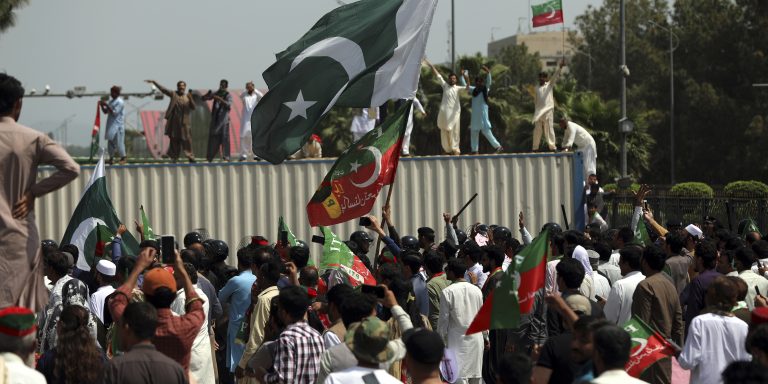By: Rimsha Sarwar
Pakistan’s political crisis has spiraled into a state of paralysis, crippling the nation and deepening the daily hardships of its people. While the country already struggles with economic instability, road blockades, protests, and strikes are now commonplace, further crippling the livelihoods of millions, particularly the most vulnerable. But the pressing question remains: is shutting down the entire nation the solution to our problems, or does it only exacerbate them?
Consider the plight of the average citizen. When a critical patient cannot reach a hospital because of blocked roads, who will take responsibility for the loss of life? According to reports from the Pakistan Red Crescent Society, during the 2023 wave of protests, over 200 emergency medical transfers were delayed due to road blockages, leading to multiple preventable deaths. What about the daily wage laborer, who struggles to earn a meager income, only to find himself unable to reach his workplace when the city grinds to a halt? This laborer, who feeds his family from his earnings, is left helpless in the face of widespread unrest. In fact, a survey conducted by the Pakistan Bureau of Statistics revealed that nearly 1.5 million people lost their jobs during the country’s political upheaval in 2023 alone, many of whom were daily wagers. What crime has he committed to deserve such suffering?
The impact on education is just as severe. Schools and universities are forced to close, depriving students of essential learning opportunities. Consider the children from remote areas who overcome immense challenges to pursue education, only to have their progress hindered by the instability. A 2019 UNICEF report highlighted that political unrest in Pakistan has already led to over 7 million children being out of school, a figure that is expected to rise with the continued instability. How can we envision a bright future for our youth when their access to education is constantly disrupted?
The broader implications of this ongoing crisis are deeply concerning. The foundation of a nation’s progress lies in the stability of its institutions, the empowerment of its workforce, and the education of its youth. Yet, the current political landscape undermines all of these pillars. Economic growth has also stagnated, with Pakistan’s GDP growth rate falling to just 1.5% in 2023, down from 5.5%in the previous year, largely due to the ongoing political turmoil and economic mismanagement.
The question remains: who is responsible for this state of disarray? Is it the political leaders, the state, or a society that has become increasingly indifferent to the suffering of its most vulnerable? While protests and dissent are fundamental rights, they must not come at the cost of the lives and livelihoods of ordinary citizens.
All stakeholders’ politicians, policymakers, and civil society must come together and work toward constructive solutions. The well-being of the nation must take precedence over personal and political agendas. Only through unity, responsible governance, and a focus on the common good can we hope to address the systemic issues that have plunged our country into this crisis and work toward a more stable and equitable future.














